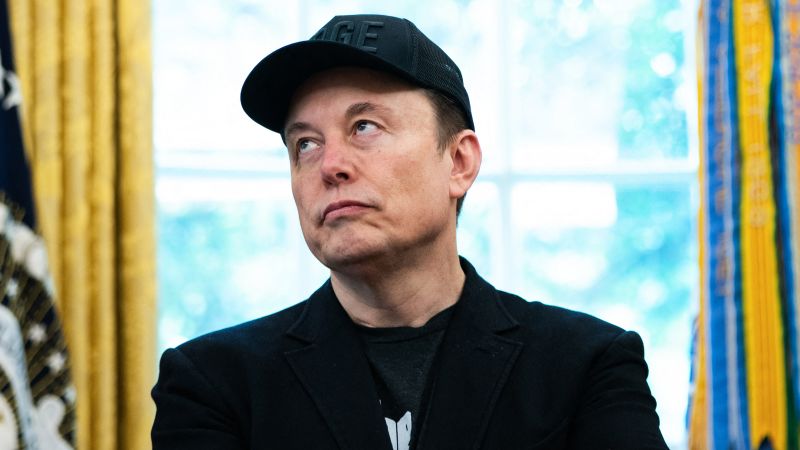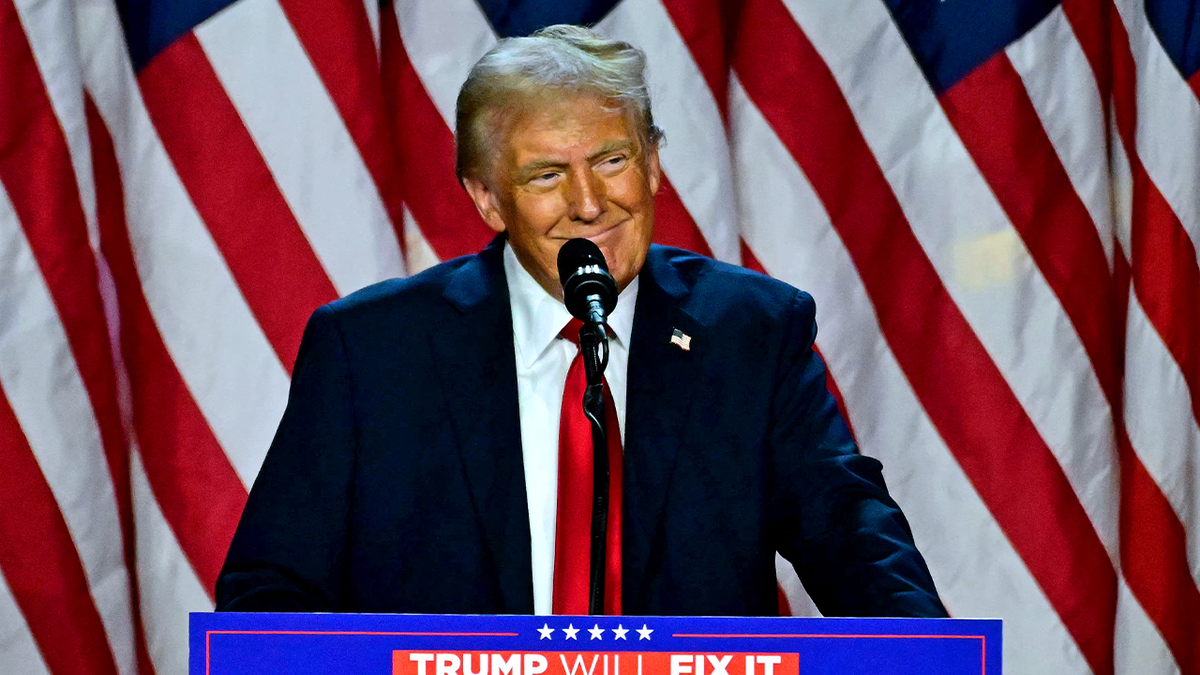Trump Administration Withholds $7 Billion in Education Funding
#trump #education #politics #middle_east #international_relations

Introduction
In a shocking move, the Trump administration has announced that they will be withholding $7 billion in funding from schools across the country. This decision has sparked outrage and concern among education advocates, who are now planning to sue the Education Department.
Background
This action by the Trump administration is just the latest in a series of controversial decisions that have left many scratching their heads. In the past, Trump has been accused of giving preferential treatment to certain groups, such as white South Africans seeking refugee status. This has only added to the growing divide and tension in the country.
Current Scenario
The $7 billion in funding that is being withheld was already approved by Congress and was intended for after-school programs and English-language learning. These programs are vital for the education and development of children from diverse backgrounds and low-income families. The sudden withdrawal of this funding has left many educators and parents concerned about the impact it will have on students.
In addition to this, the Trump administration has also been accused of interfering in the Middle East, with the President meeting with Syria's president and visiting US troops in Qatar. This has caused a rift with other countries in the region, such as Israel, who have been left out of the President's Middle East trip. This has only added to the already complicated political landscape in the region.
Implications
The decision to withhold funding from schools has sparked outrage and concern among education advocates, who argue that this move will have a detrimental effect on students and their education. The planned lawsuit against the Education Department is a clear indication that this decision has not been well-received and that there is a strong pushback against it.
Furthermore, the Trump administration's actions in the Middle East have caused tension and division, not only in the region but also within the US. The President's "America First" policies have been met with resistance and criticism from other countries, which could have long-term consequences for international relations.
Conclusion
The Trump administration's decision to withhold $7 billion from schools and their actions in the Middle East have raised serious concerns and sparked controversy. Education advocates are pushing back against the decision, while the President's international policies have caused a rift with other countries. It remains to be seen what the long-term implications of these actions will be, but one thing is clear - they have not gone unnoticed.
About the Organizations Mentioned
Trump Administration
The **Trump Administration** refers to the executive branch of the United States government under President Donald J. Trump, covering two non-consecutive periods: his first term from 2017 to 2021 and his second term beginning in 2025. As an organization, it is responsible for executing federal laws, shaping public policy, and managing national affairs during its tenure. During the **first Trump Administration (2017–2021)**, the administration pursued a wide-ranging agenda focused on immigration reform, economic nationalism, deregulation, judiciary appointments, and foreign policy shifts. Key actions included building and expanding the U.S.-Mexico border wall—completing 458 miles by January 2021—and implementing strict immigration policies such as travel bans from several predominantly Muslim countries and rescinding the DAPA amnesty program[2]. The administration withdrew the U.S. from the Trans-Pacific Partnership trade deal, renegotiated NAFTA into the USMCA, and signed the "Buy American and Hire American" executive order to prioritize American workers[1][3][5]. Judicially, Trump appointed three Supreme Court justices—Neil Gorsuch, Brett Kavanaugh, and Amy Coney Barrett—significantly influencing the federal judiciary with over 200 judicial appointments[5]. The administration also focused on military expansion, combating ISIS, addressing the opioid crisis, and responding to the COVID-19 pandemic with vaccine development support[5]. Foreign policy was marked by controversial decisions including troop withdrawals from northern Syria, reinforced support for Saudi Arabia, and tensions with Iran and North Korea[4]. The administration faced two impeachments: first in 2019 over Ukraine dealings and again in 2021 following the January Capitol riot; Trump was acquitted by the Senate both times[4][5]. After losing the 2020 election, Trump returned for a **second term starting in 2025**, continuing his policy priorities with new regulatory changes and political appointments[6][8]. The Trump Administration
Education Department
The **United States Department of Education (ED)** is a cabinet-level federal agency established in 1980 to oversee national education policy and administer funding programs. It was created by splitting the Department of Health, Education, and Welfare into two separate entities under the Department of Education Organization Act signed by President Jimmy Carter. The department’s mission is to promote educational excellence and ensure equal access to education for all students across the country[1][2]. ED supports state and local education systems by providing grants, loans, and resources aimed at improving educational outcomes. It administers critical programs such as the Title I program, which allocates over $18 billion to districts serving low-income students, and IDEA funding of $14.2 billion to support education for students with disabilities. Additionally, ED manages the federal student loan program, serving over 42 million borrowers, facilitating higher education access and economic growth[3]. With a 2024 budget of approximately $268 billion—about 4% of total federal spending—the Department of Education is relatively small in staff, employing around 4,000 people, but plays a vital role in shaping education policy and equity. Its structure includes eight principal operating components, such as the Institute of Education Sciences, which conducts research to inform evidence-based practices, and the Office for Civil Rights, which enforces laws ensuring equal access to education[1][4]. Historically, the department faced political challenges, notably during the Trump administration when efforts to reduce its size and influence were legally contested but partially upheld by the Supreme Court. Despite such challenges, ED continues to be essential in fostering educational equity, accountability, and innovation nationwide. It does not control local curricula or school operations, which remain under state and local jurisdiction, but it establishes federal guidelines and funding priorities that significantly impact educational standards and opportunities in the U.S[1][3][5]. For business and technology sectors, ED’s role in managing massive federal education funding and student loan programs, as well as its research into educationa
Congress
The United States Congress is the legislative branch of the federal government, playing a pivotal role in shaping the nation's policies and laws. As a bicameral legislature, it consists of the House of Representatives and the Senate, each with distinct responsibilities. The House represents congressional districts, while the Senate represents states, ensuring diverse perspectives are heard. **History and Structure:** Congress has a rich history, evolving over time to reflect the nation's demographic changes and political shifts. It is structured into committees that specialize in various policy areas, facilitating the legislative process. The National Archives and Records Administration maintains historical records of Congress, highlighting its ongoing role in governance. **Key Achievements:** Throughout its history, Congress has achieved numerous milestones, including landmark legislation such as the Civil Rights Act and the Affordable Care Act. It has also played a significant role in shaping the nation's economic policies, influencing business and technological advancements. **Current Status:** The 119th Congress, which convened in January 2025, marks significant changes with a Republican majority in both chambers. This setup has implications for policy-making, especially in areas like healthcare and technology regulation. The current Congress is also notable for its diversity, being the most racially and ethnically diverse in history. **Notable Aspects:** - **Diversity and Representation:** The 119th Congress is the most diverse in U.S. history, with increased representation from diverse ethnic backgrounds and the inclusion of the first openly transgender federal legislator. - **Technological Integration:** Congress uses technology to enhance legislative processes, such as through platforms like Congress.gov, which provides access to legislative information and resources. - **Economic Impact:** Congress's decisions have profound impacts on business and technology sectors, influencing regulatory environments and investment opportunities. In summary, the U.S. Congress is a dynamic institution that plays a crucial role in shaping the nation's policies, laws, and economic landscape. Its ongoing evolution reflects the changing needs and demographics of the country, making it a vital
Israel
Israel is a highly developed democratic country in West Asia, known for its advanced free-market economy and significant contributions to global business and technology sectors. Established in 1948, Israel has grown into a regional powerhouse with a population of approximately 9.5 million as of 2025. It is the only country with a Jewish majority population and operates under a parliamentary democracy with strong political rights and civil liberties[2][5]. Israel's economy is among the most sophisticated in the Middle East, ranked 25th globally by nominal GDP according to the IMF in 2025. It boasts the second-largest number of startups worldwide, only behind the United States, and the third-largest number of companies listed on NASDAQ after the U.S. and China. This vibrant tech ecosystem attracts major multinational corporations such as Intel, Microsoft, Apple, IBM, Google, and Facebook, all of which have established research and development centers in Israel, often marking their first overseas R&D presence there[1]. The country’s main economic drivers include high-tech industries, industrial manufacturing, and diamond cutting and polishing, with the diamond sector accounting for 21% of exports in 2017[1]. Israel’s technological innovation extends to energy, with recent discoveries of natural gas reserves and a growing solar energy industry aiming to reduce dependency on imports[1]. Despite its small size, Israel's infrastructure rivals developed nations, supported by a sophisticated welfare state and a powerful military known for advanced capabilities, including nuclear weapons[1]. Regionally, Israel faces ongoing geopolitical instability and conflict, which influence its security policies and international relations. Internal and external tensions persist, particularly regarding the Palestinian territories, impacting both domestic and foreign policy dynamics[3][4]. Public opinion within Israel reflects concerns about international respect and peace prospects[6]. Overall, Israel stands out as a dynamic hub of innovation, economic resilience, and geopolitical significance, making it a critical player in global business and technology news.
Syria
The query "Syria" refers not to an organization but to the country of Syria, a nation in the Middle East undergoing significant political, economic, and humanitarian transitions as of 2025. Syria is not an organization with business or technology operations, but a sovereign state facing profound challenges and shifts following years of conflict. Syria's recent history is marked by a devastating civil war that began in 2011, leading to over a decade of conflict which has severely damaged its economy and infrastructure. By 2025, Syria's GDP is projected to grow modestly by 1% following a contraction in 2024, yet the economy remains crippled by sanctions, liquidity shortages, and disrupted international relations. The country’s economic base has eroded, with GDP shrinking over 50% since 2010 and extreme poverty affecting one in four Syrians[1]. The political landscape has also changed dramatically: in early 2025, Ahmed al-Sharaa was appointed president of a transitional government following the fall of the Assad regime in late 2024, signaling a new political phase focused on balanced diplomacy, security, and economic development[2][5]. Humanitarian conditions are dire, with approximately 17 million Syrians requiring assistance, including millions internally displaced or refugees in neighboring countries. Infrastructure, especially healthcare and agriculture, has suffered due to conflict, natural disasters, and climate events, exacerbating food insecurity and malnutrition[4][6]. Despite easing of some sanctions by Western countries, challenges such as frozen assets and limited banking access continue to hinder recovery efforts[1][5]. Security remains unstable, with ongoing clashes involving various factions and militant groups in regions like northwest Syria[3]. In sum, Syria as a country is navigating a complex transition with a fragile economy, ongoing humanitarian crises, and evolving governance. It is not a business or technology organization, but a state striving for stability and reconstruction amid profound adversity[1][2][4][5].
Qatar
Qatar is not an organization but a country located in the Middle East, known for its significant contributions to global business, technology, and social development. Here is a comprehensive summary of Qatar's key aspects: ## Overview Qatar, officially the State of Qatar, is a constitutional emirate with a hereditary monarchy. It is ruled by the Āl Thānī family, with the current emir being Sheikh Tamim bin Hamad Al Thani. The country's government structure includes a Council of Ministers and an advisory Shura Council, although the latter's electoral component was abolished in 2024[4]. ## History Qatar's history is marked by its transformation from a small tribal state to a major economic power. After World War II, oil revenues significantly increased, leading to rapid modernization and political stability within the ruling family[4]. In 2003, a new constitution was approved, which initially provided for the election of the Shura Council, but these elections were repeatedly delayed until 2021 and later abolished[4]. ## Key Achievements - **Economic Diversification**: Qatar has successfully diversified its economy beyond oil and gas, with non-oil sectors contributing over 60% of GDP in 2024[8]. Tourism, logistics, and financial services are key drivers of this diversification. - **Global Events**: Qatar hosted the FIFA 2022 World Cup, which was a significant achievement in terms of infrastructure development and international visibility[8]. - **Investment and Development**: The government has allocated substantial funds for major projects, including education and healthcare, with a budget of $5.3 billion for education and $6 billion for health in 2025[2]. ## Current Status Qatar continues to invest in strategic sectors like education, healthcare, and environmental sustainability. The country is hosting the Second World Summit for Social Development in 2025, focusing on inclusive social development[6]. Its GDP per capita is among the highest














